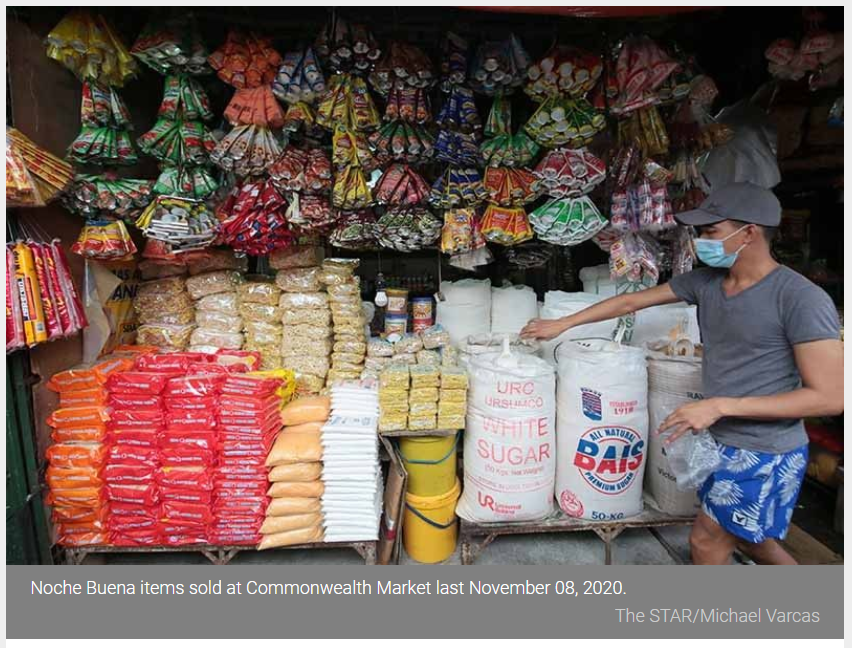Philippines: Easing transport costs temper inflation to 4.1% in June
MANILA, Philippines (Update 2, 11:57 a.m.) — A slower increase in transportation fares tempered inflation in June, a welcome reprieve to consumers still reeling from pandemic-induced economic shocks and giving the central bank enough reasons to sustain its easy-money policy.
After three straight months of steady reading, inflation, as measured by the consumer price index, eased to 4.1% year-on-year in June, the Philippine Statistics Authority reported Tuesday. This was slower than 4.5% clip recorded in May.
The softer price uptick brought the six-month average to 4.4%, still above the Bangko Sentral ng Pilipinas’ 2-4% annual target. It was a much-needed respite for consumers whose livelihood and incomes were hurt by the pandemic-led recession, with inflation felt by poor Fillipino families also easing to 4.3% on-year in June from 4.5% in the previous month.
In a statement, BSP Governor Benjamin Diokno, who ushered in massive cuts to the policy rate to support an ailing economy, said the latest reading was “consistent with expectations that inflation could remain above target in the near term as meat and oil prices remain elevated.”
“The risks to the inflation outlook remain broadly balanced. The uptick in international commodity prices owing to supply chain bottlenecks and the recovery in global demand could lend upward pressures on inflation,” Diokno said.
“However, downside risks to the inflation outlook continue to emanate from the emergence of new coronavirus variants which could delay the easing of lockdown measures and temper prospects for domestic growth,” he added.
Dissecting the latest PSA report, much of the deceleration in headline inflation mainly came from milder increase in transport costs, which softened to 9.6% in June from 16.5% previously. Still, National Statistician Claire Dennis Mapa told a press conference that the reading remains high and bears close watching.
Data showed tricycle fares went up at a slower annual rate of 17.6% last month from 38.8% previously, but Mapa said the figure was distorted by so-called “base effects” from last year, when tricycle fares sharply went up to meet commuter demand left by jeepneys, most of which were not allowed to ply routes due to lockdowns.
Meanwhile, fuel prices softened 21.5% annually in June from 33% in May.
Contributing the most to last month’s inflation were food and non-alcoholic items, which registered a slightly faster price growth of 4.7% last month. Prices of meat climbed at a milder pace of 19.2% — albeit still at double-digit rate — as pork imports meant to plug a supply hole left by the local African swine fever outbreak start arriving. Fish inflation, however, quickened to 8.7% driven by more expensive galunggong (mackerel scad) and tulingan (bullet tuna).
Moving forward, Mapa said “threats” to the inflation outlook include a sudden surge in prices of transportation and food, as well as rallying oil prices. Analysts agreed.
“Even with transport costs related to higher fuel are expected in the near term, for as long as food inflation stays behaved and base effects from pandemic-related price increases wash out (tricycle fares and other service) we could see inflation sliding below 4% as early as July and staying within target for the balance of the year,” Nicholas Antonio Mapa, senior economist at ING Bank in Manila,” said.
Separately, Miguel Chanco, senior Asia economist for Pantheon Macroeconomics, believes the easing price growth is only temporary and that the BSP should not get too comfortable in the face of recovering oil prices. “Our forecast for a persistent, albeit gradual, recovery in global oil prices points to a return to stubborn double-digit transport inflation well into the first quarter of next year,” Chanco said.
“We believe that the country’s food inflation woes are far from over, despite the recent disinflation on this front,” he added.
Source: https://www.philstar.com/business/2021/07/06/2110548/easing-transport-costs-temper-inflation-41-june


 English
English




